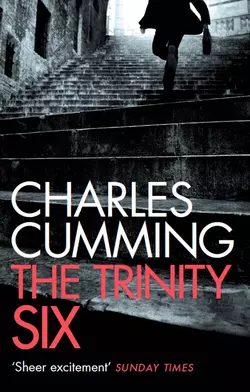The Trinity Six

Charles Cumming
Тип: электронная книга
Жанр: Шпионские детективы
Язык: на английском языке
Стоимость: 736.37 ₽
Статус: В продаже
Издательство: HarperCollins
Дата публикации: 16.04.2024
Отзывы: Пока нет Добавить отзыв
О книге: FROM THE WINNER OF THE CWA IAN FLEMING STEEL DAGGER 2012 FOR BEST THRILLER OF THE YEAR. Perfect for fans of John le Carré, a gripping and suspenseful spy thriller from ‘the master of the modern spy thriller’ (Mail on Sunday)